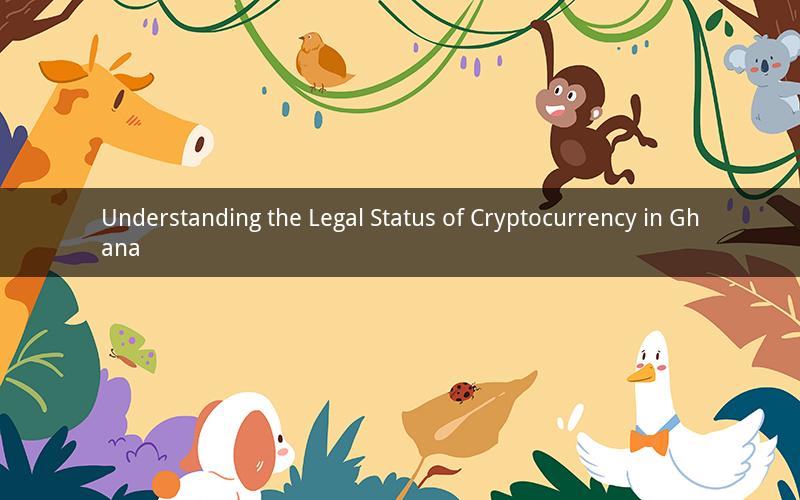
In recent years, the world has witnessed a significant rise in the popularity of cryptocurrencies. This digital currency has garnered attention from investors, businesses, and governments alike. One such country that has been at the forefront of embracing this new financial technology is Ghana. This article delves into the legal status of cryptocurrency in Ghana, exploring its regulations, challenges, and potential future.
The Legal Framework
Ghana, as a member of the Economic Community of West African States (ECOWAS), has been working towards establishing a comprehensive legal framework for cryptocurrencies. However, the country has yet to fully legalize or ban the use of digital currencies. Instead, the government has taken a cautious approach, aiming to strike a balance between innovation and consumer protection.
In 2019, the Bank of Ghana (BoG) issued a statement warning the public about the risks associated with cryptocurrencies. The central bank emphasized that virtual currencies are not legal tender in Ghana and that their use for payment of debts is prohibited. Additionally, the BoG advised financial institutions not to provide services to cryptocurrency exchanges and wallet providers.
Despite these warnings, the government has not banned the use of cryptocurrencies entirely. Instead, it has allowed the market to develop under a regulatory sandbox. This approach allows the government to monitor the market and understand its dynamics before implementing comprehensive regulations.
Challenges Faced by Cryptocurrency Users in Ghana
Despite the legal uncertainties, many Ghanaians have shown interest in cryptocurrencies. However, they face several challenges, including:
1. Lack of Awareness: Many people in Ghana are still unfamiliar with cryptocurrencies and their underlying technology. This lack of awareness makes it difficult for them to understand the risks and opportunities associated with digital currencies.
2. Regulatory Uncertainty: The legal status of cryptocurrencies in Ghana remains unclear, which creates uncertainty for businesses and investors. This uncertainty can hinder the growth of the cryptocurrency market in the country.
3. Limited Access to Exchanges: Due to the regulatory environment, access to cryptocurrency exchanges in Ghana is limited. This makes it difficult for individuals to buy, sell, and trade digital currencies.
4. Security Concerns: The use of cryptocurrencies is not without risks. Users in Ghana are exposed to hacking, phishing, and other cyber threats, which can lead to the loss of their investments.
5. Taxation Issues: The tax implications of cryptocurrency transactions in Ghana are not yet clear. This can create challenges for individuals and businesses trying to comply with tax regulations.
The Potential Future of Cryptocurrency in Ghana
Despite the challenges, there is a growing belief that cryptocurrencies have a bright future in Ghana. Here are some reasons why:
1. Increasing Interest: The demand for cryptocurrencies in Ghana is on the rise, with more people and businesses showing interest in digital currencies.
2. Government Support: The government has shown a willingness to work with the private sector to develop a regulatory framework that promotes innovation while protecting consumers.
3. Technology Adoption: Ghana has been at the forefront of technology adoption in Africa. The country has a growing tech-savvy population, which is well-suited for the adoption of cryptocurrencies.
4. Financial Inclusion: Cryptocurrencies can play a crucial role in promoting financial inclusion in Ghana. They can provide access to financial services for unbanked and underbanked individuals.
5. Economic Growth: The growth of the cryptocurrency market in Ghana can contribute to the country's economic development by creating new job opportunities and attracting foreign investment.
Frequently Asked Questions (FAQs)
1. Is it legal to use cryptocurrencies in Ghana?
Answer: Yes, it is legal to use cryptocurrencies in Ghana. However, the government has not fully legalized them, and their use is subject to certain regulations.
2. Can I use cryptocurrencies to pay my bills in Ghana?
Answer: No, you cannot use cryptocurrencies to pay your bills in Ghana. The Bank of Ghana has prohibited the use of digital currencies for payment of debts.
3. Are there any cryptocurrency exchanges in Ghana?
Answer: Yes, there are a few cryptocurrency exchanges in Ghana. However, access to these exchanges is limited due to the regulatory environment.
4. Can I trade cryptocurrencies in Ghana?
Answer: Yes, you can trade cryptocurrencies in Ghana. However, you should exercise caution and ensure that you are using a reputable exchange.
5. Are there any tax implications for cryptocurrency transactions in Ghana?
Answer: The tax implications of cryptocurrency transactions in Ghana are not yet clear. It is advisable to consult with a tax professional to understand your obligations.
In conclusion, the legal status of cryptocurrency in Ghana is a complex issue. While the government has not fully legalized or banned the use of digital currencies, it has allowed the market to develop under a regulatory sandbox. This approach aims to strike a balance between innovation and consumer protection. As the market continues to grow, it is essential for individuals and businesses to stay informed about the legal and regulatory landscape surrounding cryptocurrencies in Ghana.